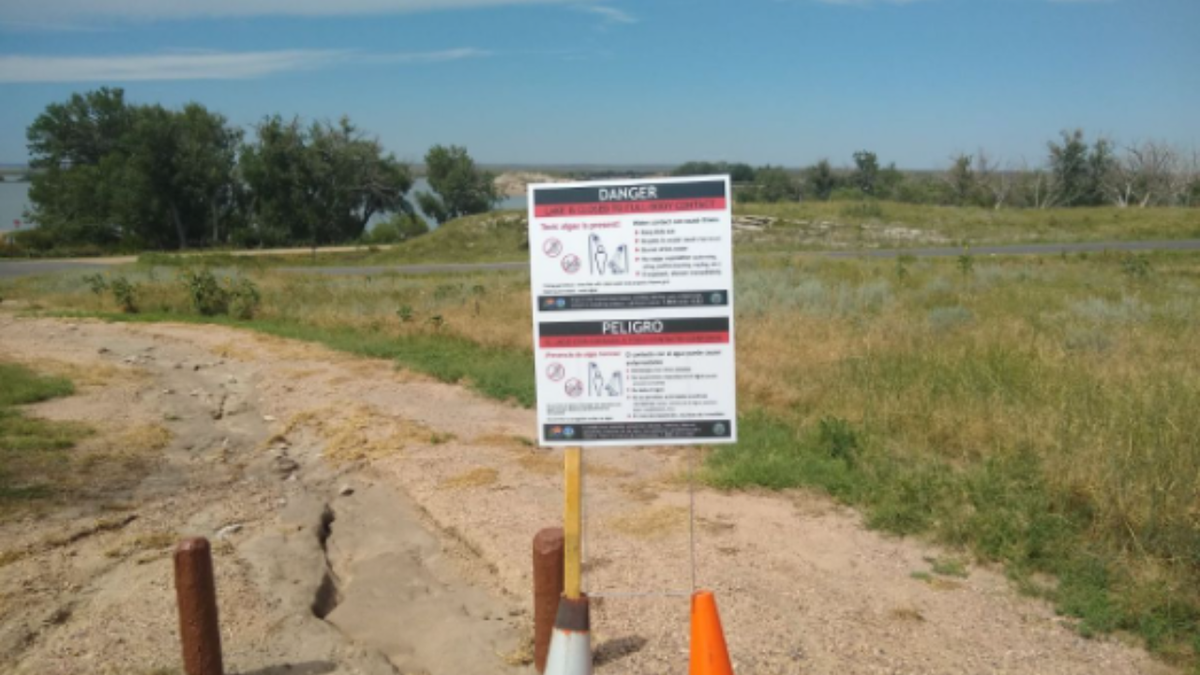Colorado Parks & Wildlife finds increased presence of toxic algae in reservoirs in northeastern Colorado

STERLING, Colo. (KRDO)-- Colorado Parks & Wildlife (CPW) is warning the community about an increased presence of potentially toxic algae found in reservoirs in northeastern Colorado.
CPW stated they observed these algae blooms at the North Sterling State Park, the Jackson Lake State Wildlife Area, the Prewitt State Wildlife Area, and the Jumbo (Julesburg) State Wildlife Area.
CPW officials stated the threshold for water recreational closures set by the Colorado Department Public Health and Environment (CDPHE) is 8 micrograms per liter (ug/L) of algal toxin and above. This is considered a “red level.”
Sample testing below 8 ug/L are considered at a “yellow level" where recreation is not restricted but visitors should take precautions at this level.
For the State Parks and Wildlife Areas mentioned above, testing found levels at the yellow level.
CPW stated the swim beach at North Sterling has prohibited swimming, paddle boarding, and wade fishing following its closure the week of Monday, July 17. However, these activities are allowed on the rest of the reservoir outside of the swim beach area. Boating and kayaking are also not restricted.
Walking paths and roads leading to the swim beach have been marked off by cones to restrict access and signs have been placed around the park warning visitors of the algae.
Staff have been conducting boat patrols to enforce the swimming ban and provide education to visitors.
Meanwhile, water recreation is not currently restricted at Prewitt, Jumbo, and Jackson Lake State Wildlife Areas, but visitors should still take precautions after going into the water by thoroughly washing off with fresh water afterwards and not drinking the water.
Dogs and other leashed pets should not come into contact with water where toxic algae blooms may be present.
According to CDPHE, symptoms of toxic algae exposure include skin irritation, fever, diarrhea, headache, muscle and joint pain, and liver damage.
Visitors should contact a healthcare provider or Poison Control at 1-800-222-1222 if suspected exposure has occurred.
